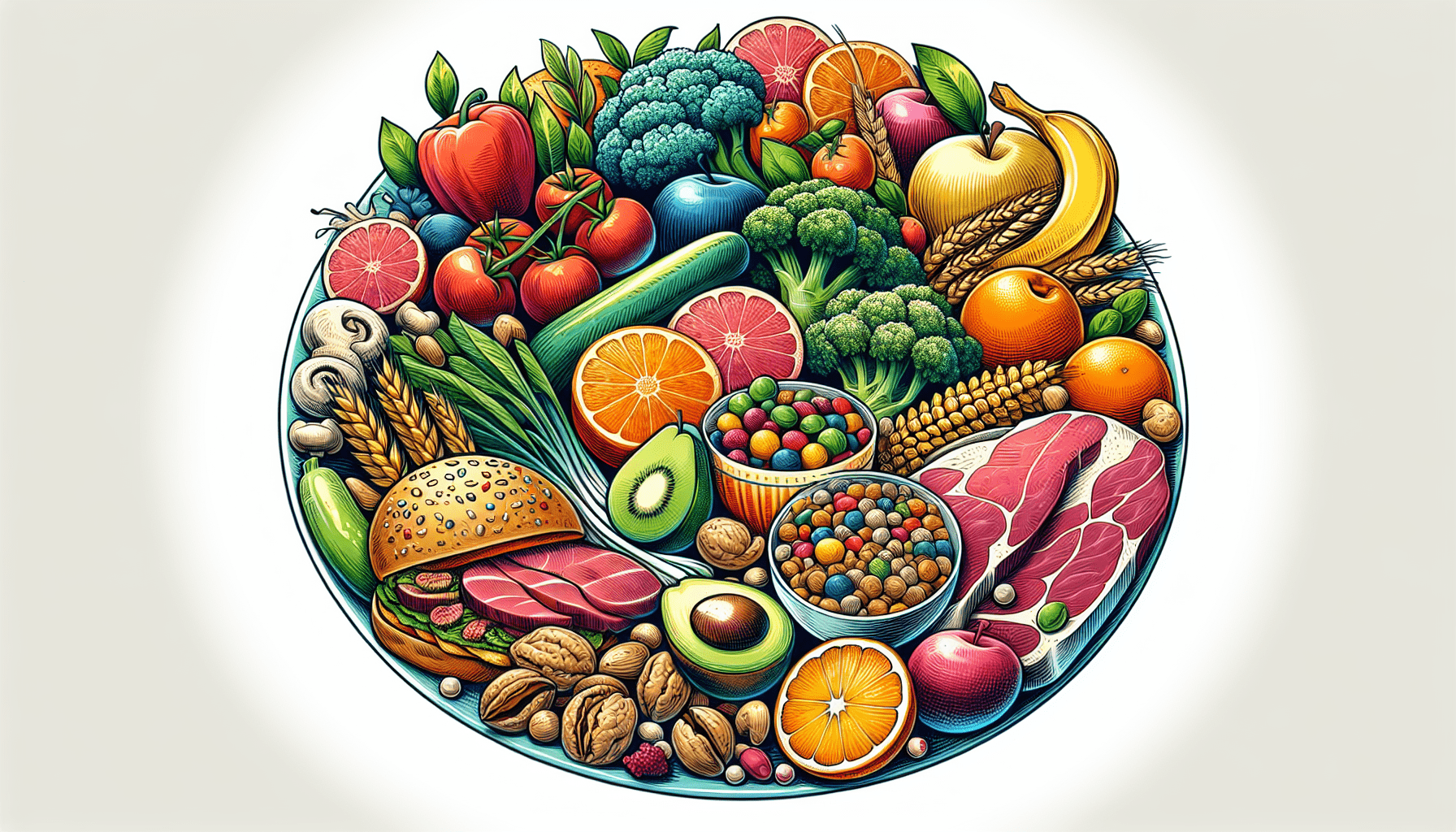Are you looking to gain weight in a healthy way, but feeling unsure about what dietary guidelines to follow? In this article, we will explore the importance of balanced nutrition for weight gain and provide you with helpful tips and guidelines to support your journey towards a healthier and happier you. By understanding the key components of a balanced diet and how they can contribute to healthy weight gain, you will be able to make informed choices that will help you achieve your goals effectively and sustainably. Let’s delve into the world of nutrition and discover how to support your body in gaining weight in a way that promotes overall well-being. Are there dietary guidelines to support healthy weight gain?
Introduction
Hey there! Have you been struggling to put on some healthy weight but unsure about the right dietary guidelines to follow? Well, look no further! In this article, we will dive into the specifics of how you can achieve healthy weight gain through proper nutrition. Let’s get started!
Understanding Calories
Before we dive into the details of specific dietary guidelines for healthy weight gain, let’s first understand the importance of calories. Calories are units of energy that our bodies need to function properly. If you consume more calories than your body burns, you will gain weight. It’s as simple as that!
Macronutrients: Proteins, Carbohydrates, and Fats
Proteins, carbohydrates, and fats are the three macronutrients that provide us with energy and are essential for healthy weight gain. Proteins are the building blocks of our muscles and are crucial for muscle growth. Carbohydrates are the body’s primary source of energy, while fats provide essential fatty acids that our bodies need.
Micronutrients: Vitamins and Minerals
In addition to macronutrients, micronutrients such as vitamins and minerals play a crucial role in supporting overall health and well-being. Make sure to include a variety of fruits, vegetables, whole grains, and lean proteins in your diet to ensure you are getting an adequate amount of vitamins and minerals.
Dietary Guidelines for Healthy Weight Gain
Now that we have a better understanding of the basics of nutrition let’s discuss some specific dietary guidelines to support healthy weight gain.
1. Increase Caloric Intake
If you are looking to gain weight, you need to consume more calories than your body burns. Start by increasing your daily caloric intake by 250-500 calories. Keep track of your progress and adjust your caloric intake as needed.
2. Focus on Quality Calories
While it may be tempting to load up on junk food to gain weight quickly, it’s essential to focus on quality calories. Choose nutrient-dense foods such as lean proteins, whole grains, fruits, and vegetables to support healthy weight gain.
3. Include Protein in Every Meal
Proteins are essential for muscle growth and repair, making them a crucial component of a diet for healthy weight gain. Include a good source of protein in every meal, such as lean meats, poultry, fish, beans, lentils, and dairy products.
4. Eat Frequently
To support healthy weight gain, try to eat frequent meals and snacks throughout the day. Aim for 3 main meals and 2-3 snacks to keep your energy levels up and support weight gain. Don’t skip meals, as this can lead to a decrease in calorie intake.
5. Hydrate Well
Staying hydrated is essential for overall health, including healthy weight gain. Make sure to drink plenty of water throughout the day and avoid sugary drinks that provide empty calories. Water is the best choice to stay hydrated and support digestion.
6. Include Healthy Fats
Don’t shy away from healthy fats when trying to gain weight. Include sources of healthy fats such as avocados, nuts, seeds, and olive oil in your diet to increase your calorie intake and support overall health.
7. Monitor Your Progress
Keep track of your weight gain progress by weighing yourself regularly. If you are not seeing the desired results, consider adjusting your caloric intake or seeking guidance from a healthcare provider or dietitian.
Sample Meal Plan for Healthy Weight Gain
To give you a better idea of how to incorporate these dietary guidelines into your daily routine, here’s a sample meal plan for healthy weight gain:
| Meal | Foods | Calories |
|---|---|---|
| Breakfast | 2 whole eggs, whole wheat toast, avocado | 400 |
| Morning Snack | Greek yogurt with mixed berries | 200 |
| Lunch | Grilled chicken breast, quinoa, broccoli | 500 |
| Afternoon Snack | Apple slices with almond butter | 200 |
| Dinner | Salmon, sweet potato, asparagus | 600 |
| Evening Snack | Protein shake with banana and almond milk | 300 |
This sample meal plan provides around 2200 calories and includes a good balance of macronutrients to support healthy weight gain. Feel free to adjust portion sizes and food choices to fit your caloric needs and preferences.
Final Thoughts
In conclusion, there are indeed dietary guidelines to support healthy weight gain. By increasing your caloric intake, focusing on quality calories, including protein in every meal, eating frequently, staying hydrated, including healthy fats, and monitoring your progress, you can achieve your weight gain goals in a healthy and sustainable way.
Remember, it’s essential to listen to your body and make adjustments as needed to support your individual needs. If you have any concerns about your weight gain journey, don’t hesitate to reach out to a healthcare provider or a registered dietitian for personalized guidance.
We hope this article has provided you with valuable insights and practical tips on how to support healthy weight gain through proper nutrition. Good luck on your journey to a healthier you!
